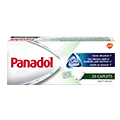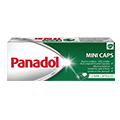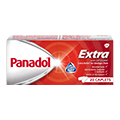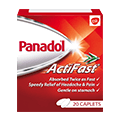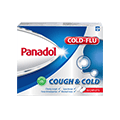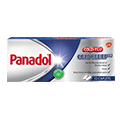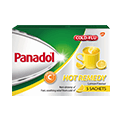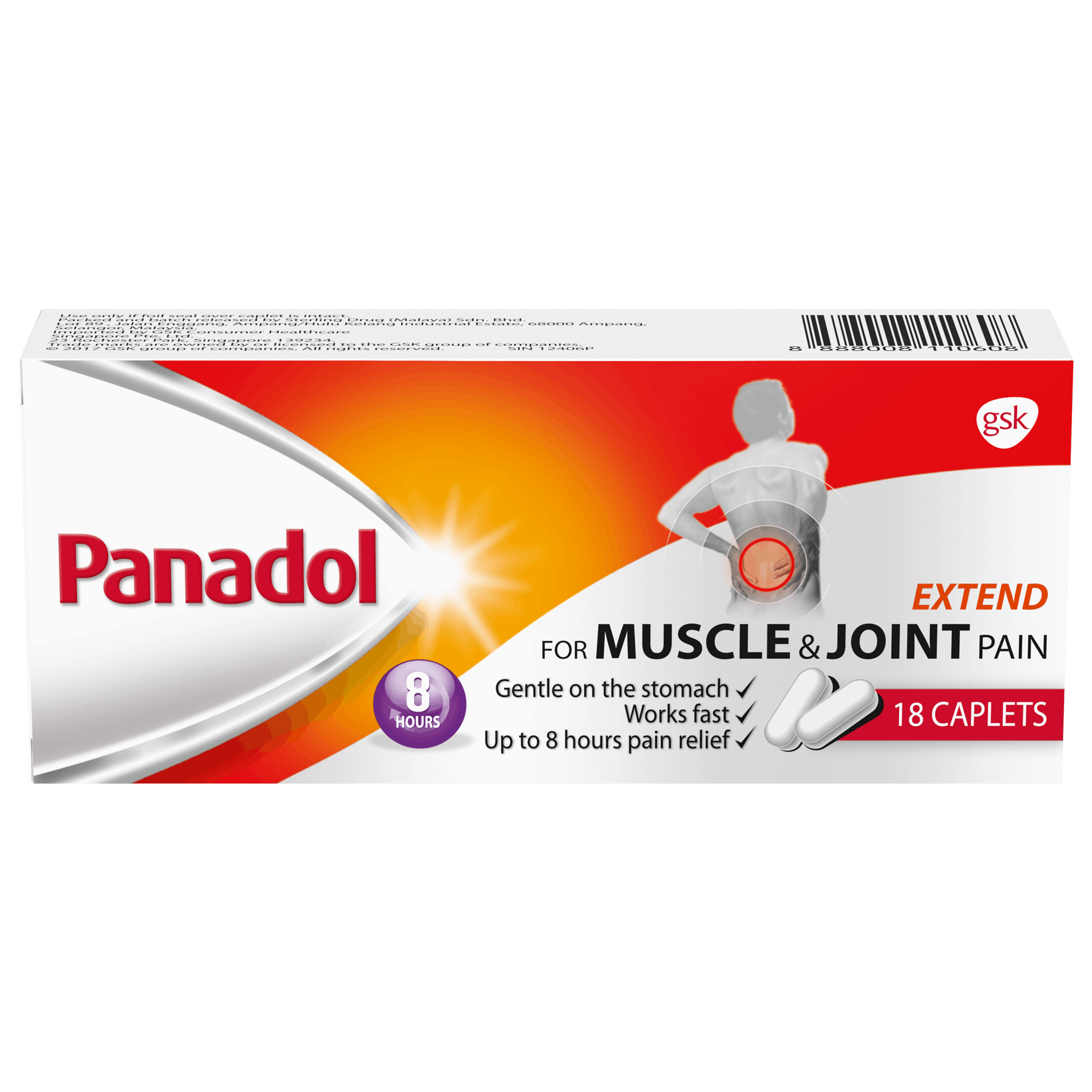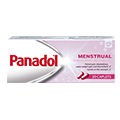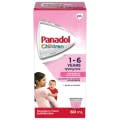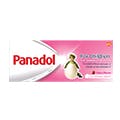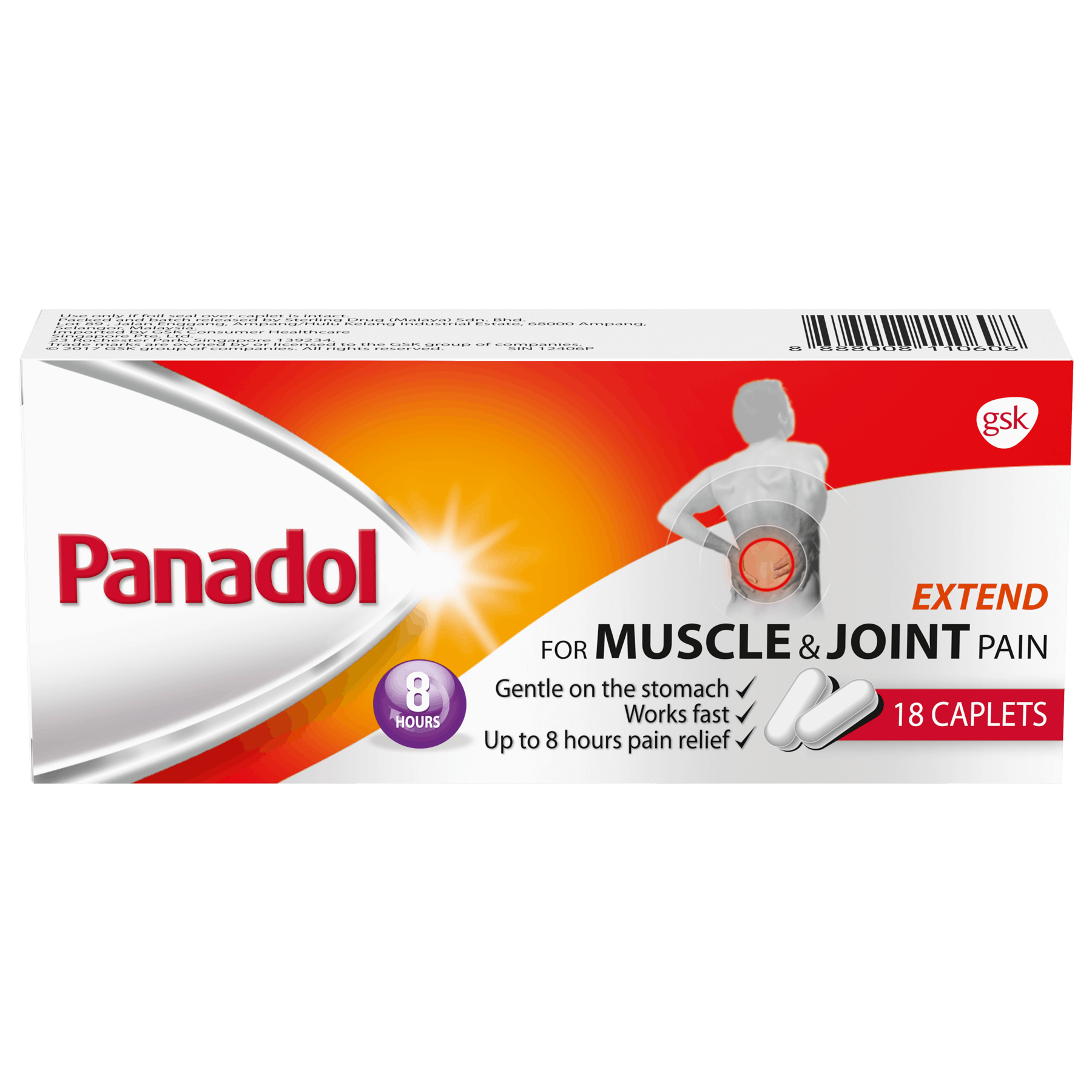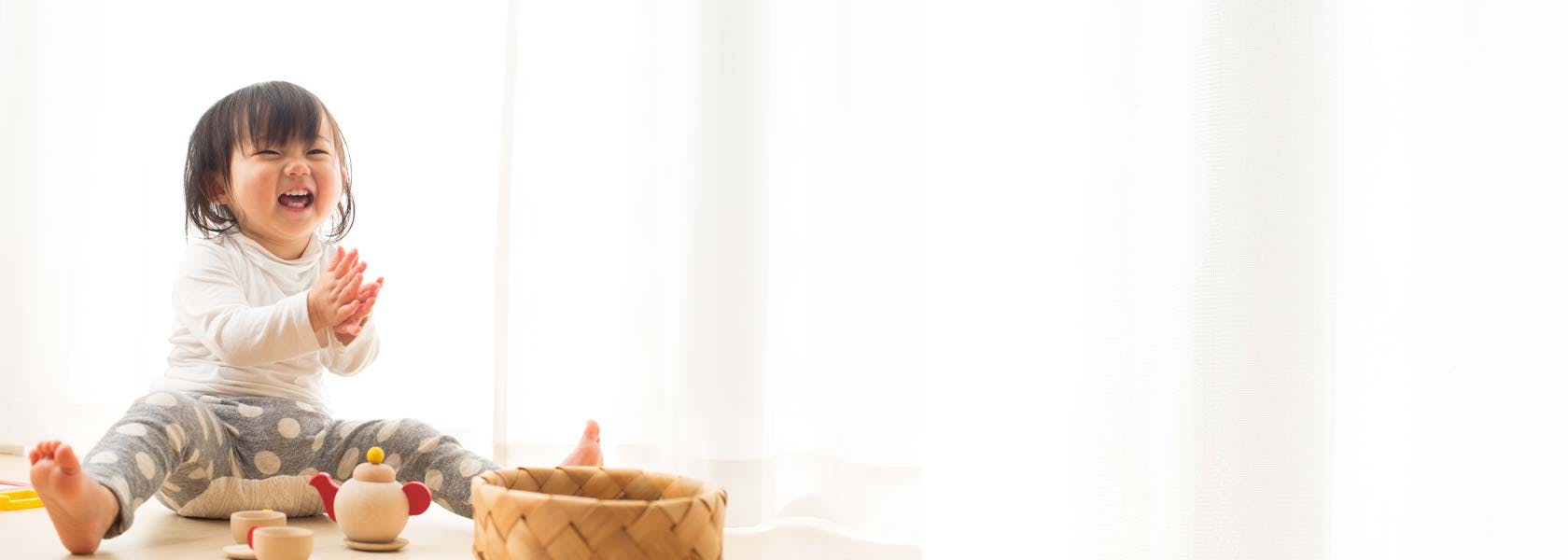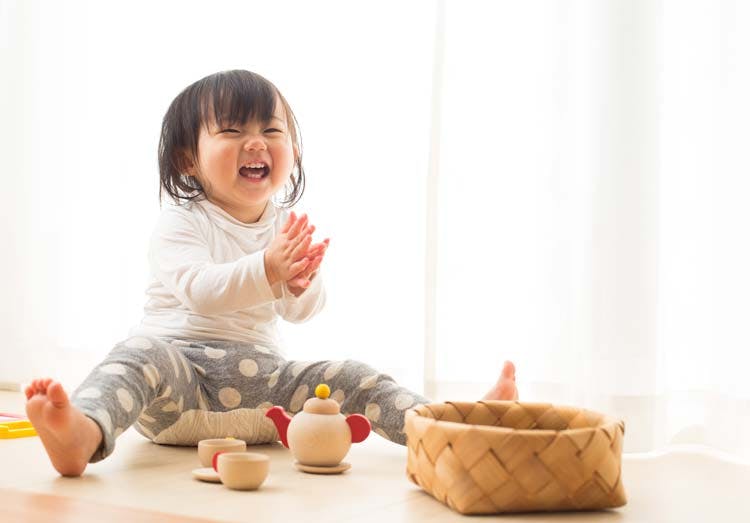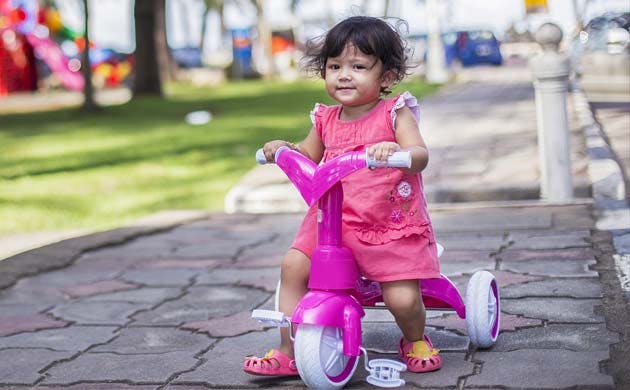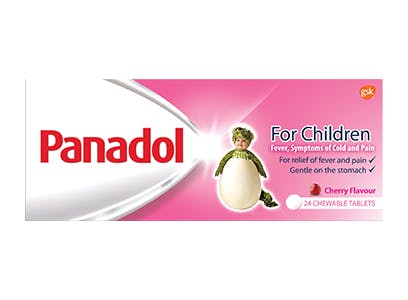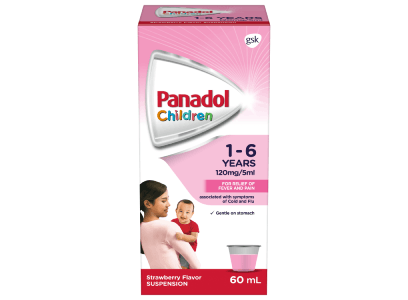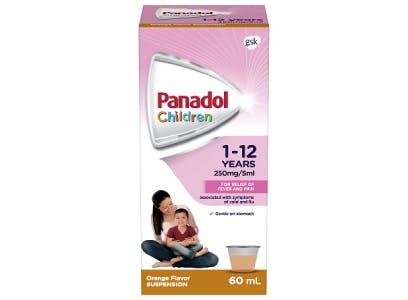

Panadol Children's Suspension 1-6 Years

Panadol Chewable Tablets

Panadol Children’s Suspension 1-12 Years

Panadol with Optizorb

Panadol Mini Caps

Panadol Soluble

Panadol Extra with Optizorb

Panadol ActiFast

Panadol Cold & Flu Hot Remedy

Panadol Cough & Cold

Panadol SinusMAX

Panadol Cold Relief PE

Panadol Extend

Panaflex Patch

Panadol Menstrual

Panadol Cold Relief PSE
Compare Now (0/5)
- Product
- Format
- Age
- Key Features
- Ingredients

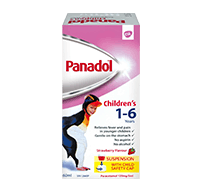
Panadol Children's Suspension 1-6 Years
- Suspension
- 1-6 Yrs
- Gentle on the Stomach
- Active Ingredient: 120 mg/5 ml Paracetamol
- No Alcohol.
- No Aspriin.

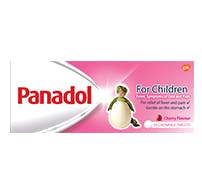
Panadol Chewable Tablets
- Chewable Tablets
- 2-12Yrs
- Gentle on the Stomach
- Active Ingredient: 120 mg Paracetamol

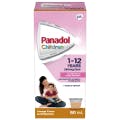
Panadol Children’s Suspension 1-12 Years
- Suspension
- 6 -12 Yrs
- Gentle on the Stomach
- Active Ingredient: 250 mg/5ml Paracetamol

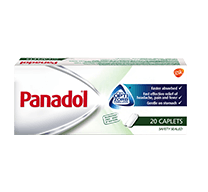
Panadol with Optizorb
- Caplets
- 12+ Yrs
- Quicker Absorption
- Active ingredient: 500mg Paracetamol

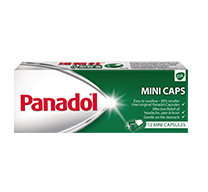
Panadol Mini Caps
- Caplets
- 12+ Yrs
- Easier to Swallow
- Active ingredient: 500mg Paracetamol
- No gluten, lactose or sugar

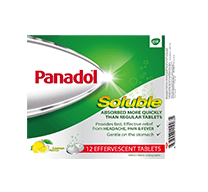
Panadol Soluble
- Effervescent Tablets
- 12+ Yrs
- Quicker Absorption
- Active ingredient: 500mg Paracetamol

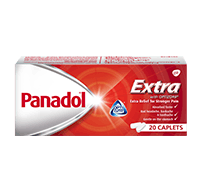
Panadol Extra With Optizorb
- Caplets
- 12+ Yrs
- Fights Tough Pain
- Active ingredient: 500mg Paracetamol, 65mg Caffeine

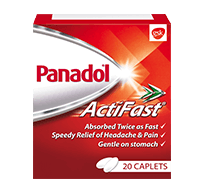
Panadol ActiFast
- Caplets
- 12+ Yrs
- Absorbed 2x Faster
- Active ingredient: 500mg of Paracetamol.

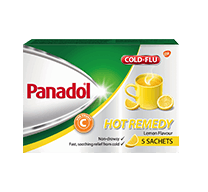
Panadol Cold & Flu Hot Remedy
- Powder Sachet
- 12+ Yrs
- Hot Drink
- Active ingredient: 750mg Paracetamol, 10mg Phenylephrine HCI, 60mg Vitamin C

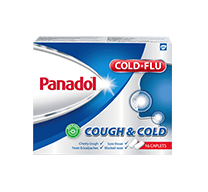
Panadol Cough & Cold
- Caplets
- 12+ Yrs
- Multi-Symptomatic Relief
- Active ingredient: 250mg Paracetamol, 5mg Phenylephrine HCI, 100mg Guaiphenesin

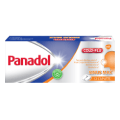
Panadol SinusMAX
- Caplets
- 12+ Yrs
- Sinus Pain
- Active ingredient: 500mg Paracetamol, 5mg Phenylephrine HCI

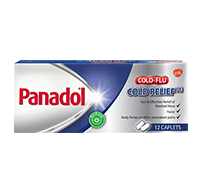
Panadol Cold Relief PE
- Caplets
- 12+ Yrs
- Relief of Cold & Flu Symptoms
- Active ingredient: 500mg Paracetamol, 5mg Phenylephrine HCI

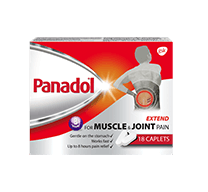
Panadol Extend
- Caplets
- 12+ Yrs
- Long-Lasting Relief
- Active ingredient: 665mg Paracetamol

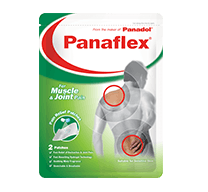
Panaflex Patch
- Patch
- 12+ Yrs
- Back Pain Remedy
- Active ingredient: 1.5% w/w Glycol Salicylate, 1.0% w/w L-Menthol, 0.5% w/w DL-Camphor, 0.3% w/w DL-α- Tocopherol Acetate (Vitamin E)

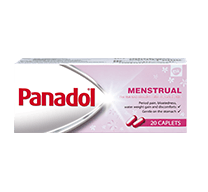
Panadol Menstrual
- Caplets
- 12+ Yrs
- Relief Period Pain
- Active ingredient: 500mg Paracetamol, 25mg Pamabrom

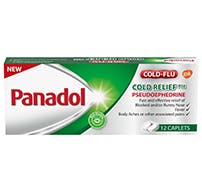
Panadol Cold Relief PSE
- Caplets
- 12+ Yrs
- Relief of Blocked and/or Runny Nose and Other Cold Symptoms
- Active ingredient: Paracetamol 500mg, Pseudoephedrine hydrochloride 30mg
Minimise
MANAGING VOMITING AND DIARRHOEA IN CHILDREN
Vomiting and diarrhoea can cause your child to lose a lot of fluids. This can be very dangerous, especially in hot weather, or if they have a fever.
Diarrhoea
This is when your child’s stool becomes much waterier and more frequent than usual. There may be mucus or blood in the stool and it may be very smelly.
Vomiting
Almost all babies bring up a bit of milk without distress. This is normal. But if your baby is suddenly vomiting a lot more, or it occurs frequently over an hour or two, it could be something more serious. The vomiting may accompany other signs of illness, like fever or diarrhoea.
Tips for babies under six months
- Do not try to manage it yourself – contact your doctor right away.
- Continue to breastfeed (small, frequent feeding is recommended).
- If you are bottle feeding, stop giving formula. Instead, offer oral rehydration fluids or 50ml of boiled water, cooled to room temperature, every hour until you can see your doctor.
Tips for babies over six months
- Continue to breastfeed. You may also offer 50– 100ml of clear fluids in between breastfeeding.
- If you are bottle feeding, stop giving formula for 12–24 hours. Give clear fluids instead. When the vomiting and diarrhoea settles, or after 24 hours, recommence with the usual formula.
- If your baby is on solids, stop for 24 hours, then slowly re-introduce them, starting with rice, pasta, potato, toast or bread, or baby rice cereal. The aim is to return to a normal diet within two to three days of the illness settling.
- Do not give medicine unless instructed by your doctor.
- Give oral rehydration solution (electrolyte solution) which you can get at your pharmacy, either in liquid form or as sachets of powder that you mix with water. This helps to replenish important minerals such as sugar and salts.
- If oral rehydration fluid is not available, fluids such as clear (without pulp), unsweetened fruit juice or cordial may be used with caution.
See your doctor if your child:
- is less than six months old and has vomiting and diarrhoea
- is less than six months old and has a fever of 38°C or above
- cannot stop vomiting and cannot keep the right amount of fluids down
- has bile-stained (greenish) vomit, or signs of blood in the vomit
- has blood or mucus in their stool
- goes four to six hours or more without a wet nappy

